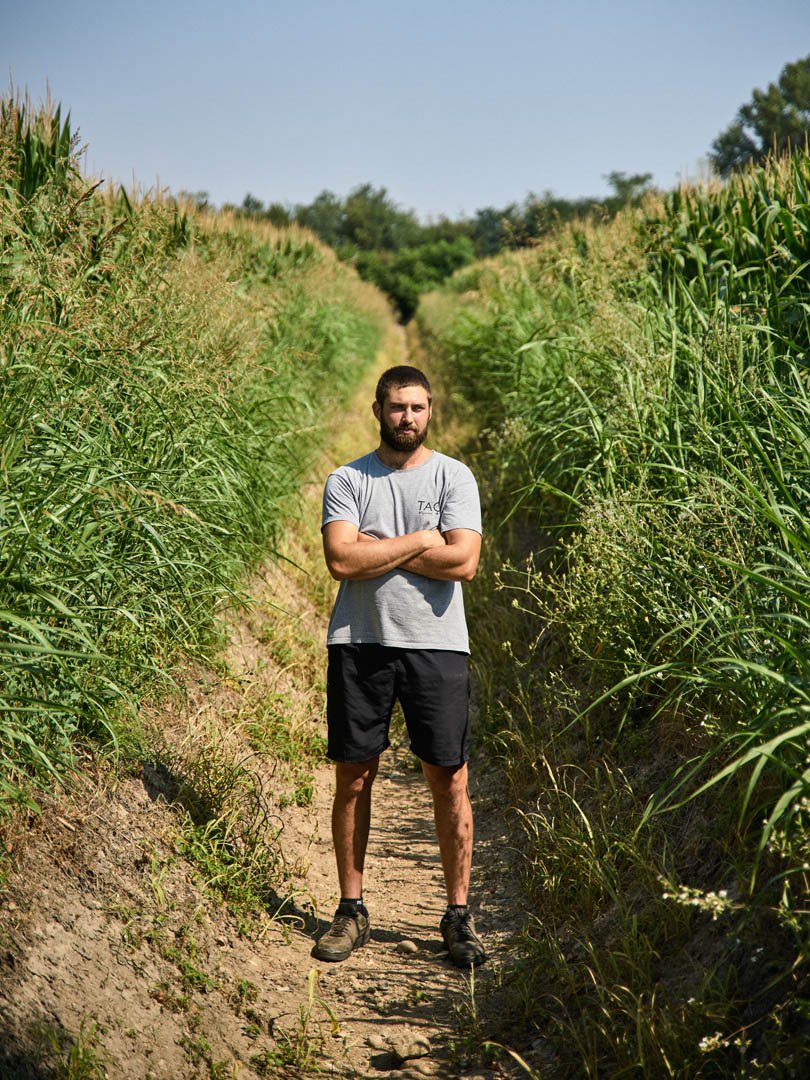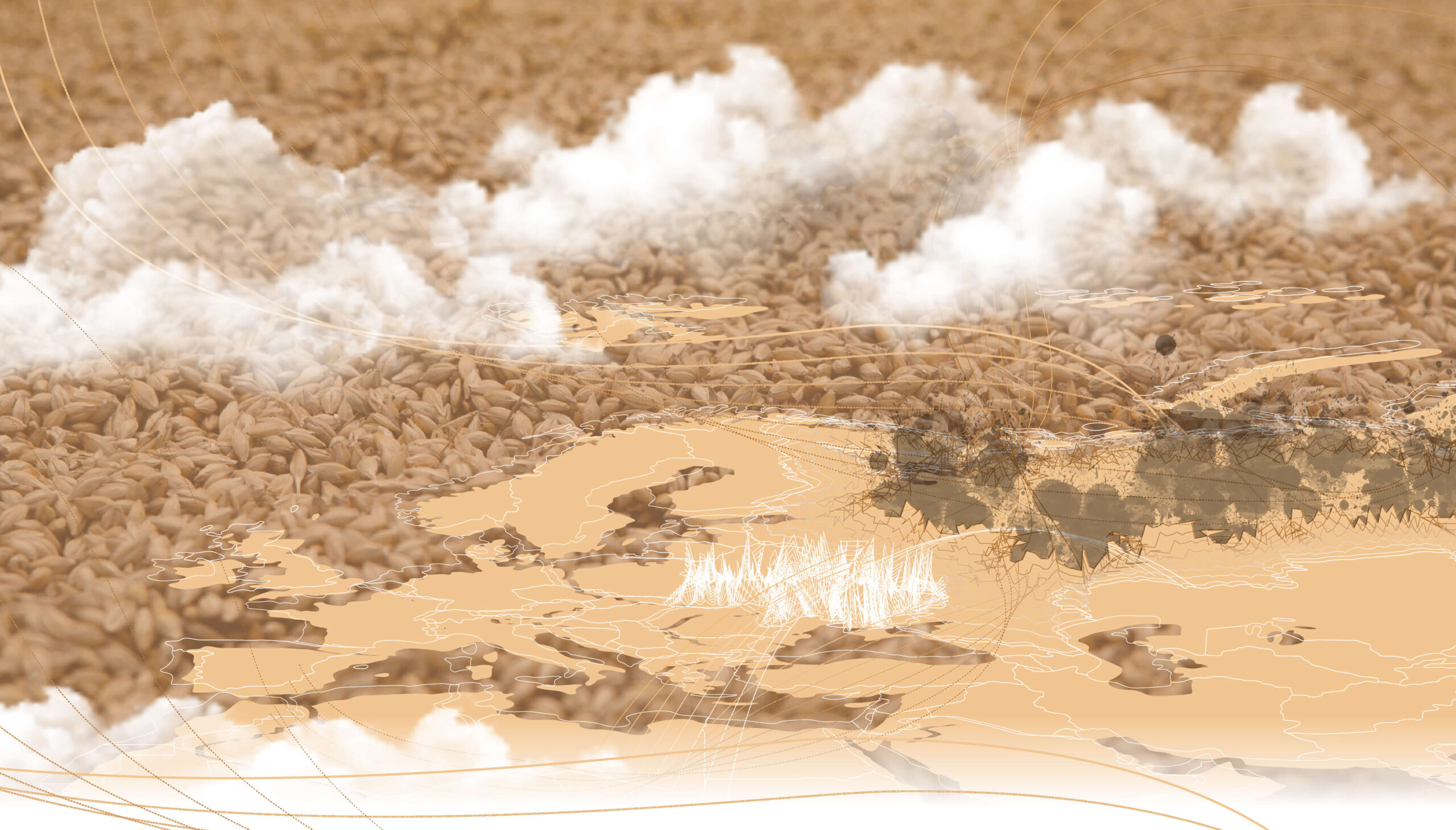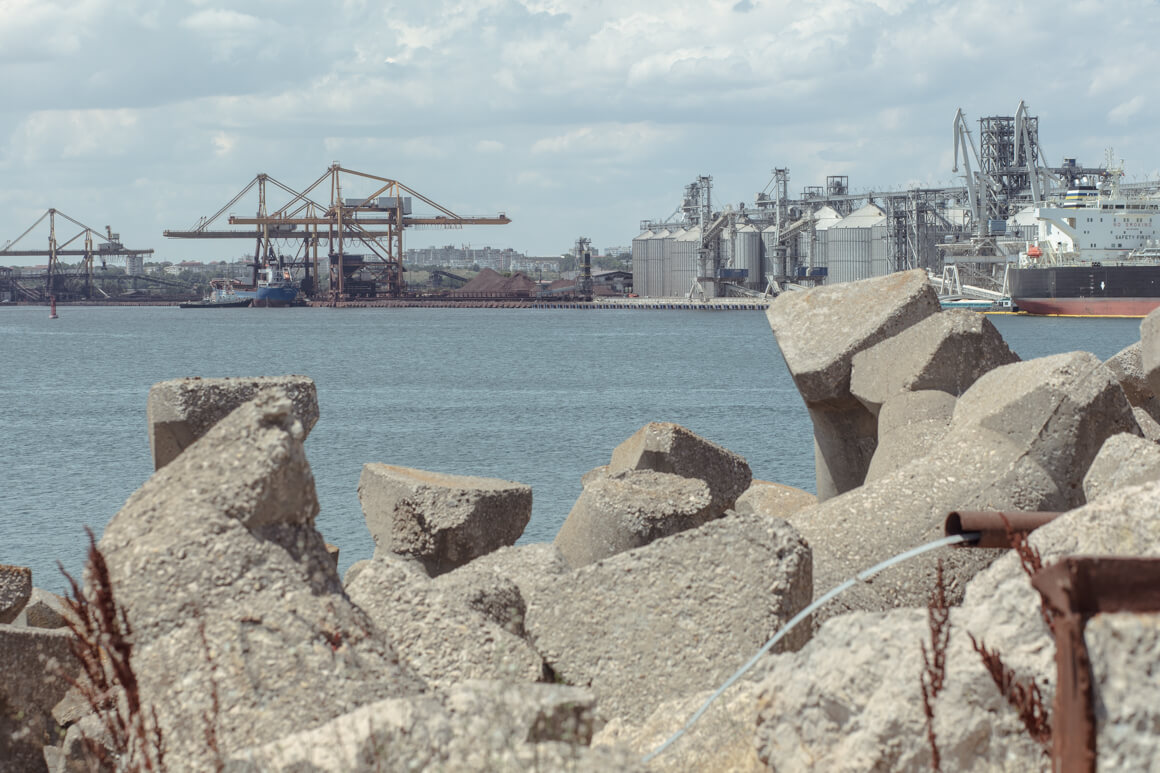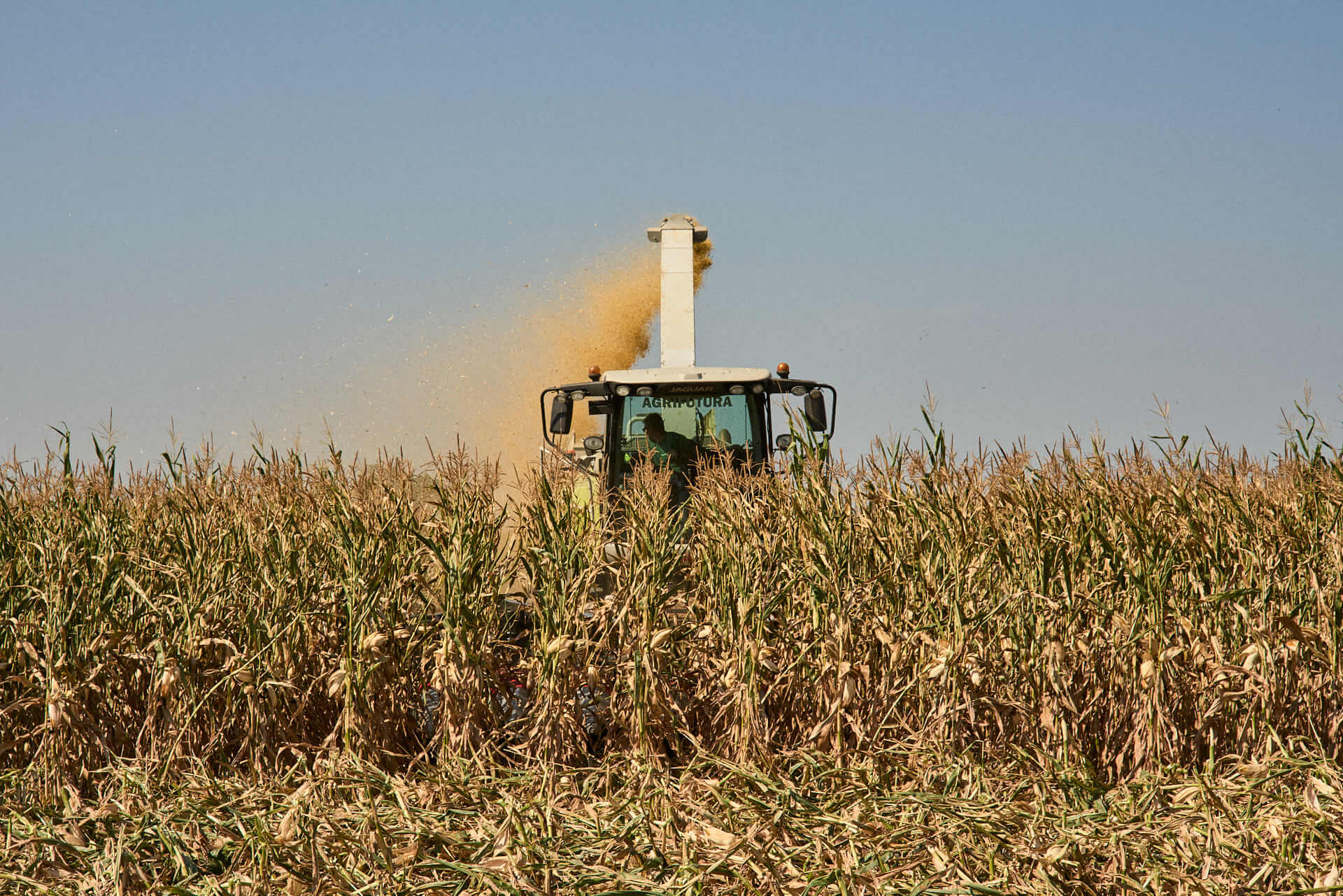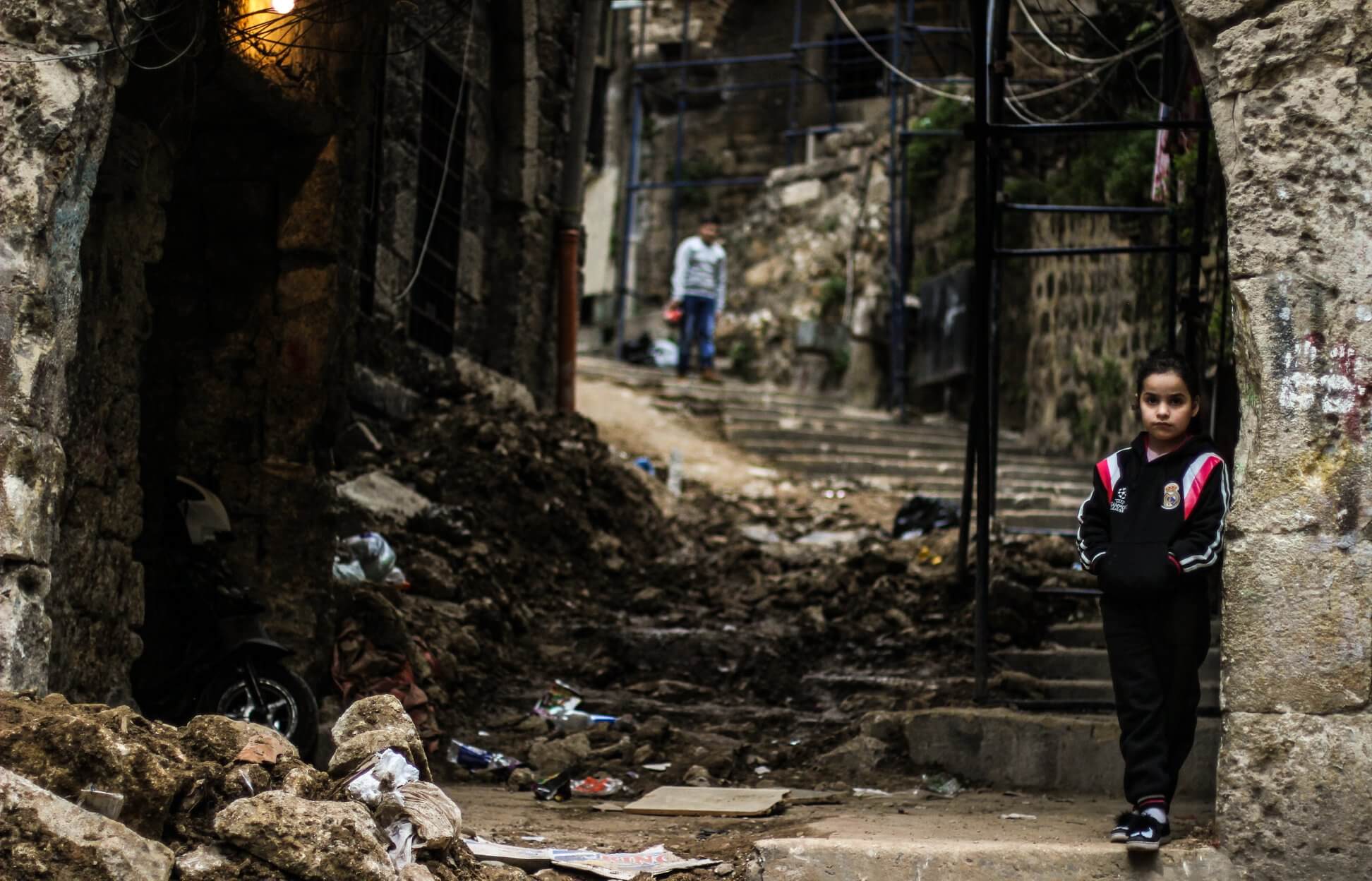Food Sovereignty in EU: From Anti-Globalist Ideal to Green-Busting Strategy
by Paolo Riva | 09.11.2022
Are movements within the EU co-opting the anti-globalist Food Sovereignty concept as a tool for winning right-wing votes, slashing environmental rules and sticking with agribusiness as usual?
How right-wing is the concept of food sovereignty? This is a debate at the heart of Europe’s agricultural powerhouses of France and Italy.
Two weeks ago, Italy’s incoming right-wing Government changed the name of the Ministry of Agricultural Food and Forestry Policies to the Ministry of Agriculture and Food Sovereignty.
The new minister for the department, Fratelli d’Italia’s Francesco Lollobrigida, defended the name change by stating “Food sovereignty is not a right-wing concept… if something works for us, it is fine, without ideological connotations.”
Changing the names of ministries to include this term is not a new political move. In May this year, following Emmanuel Macron’s victory over extreme-right Rassemblement National’s leader Marine Le Pen, France’s centrist Government also changed the name of the Ministry of Agriculture and Food to the Ministry of Agriculture and Food Sovereignty.
For Lollobrigida, the fact that another European executive, of an opposing political wing to his own, has espoused the same concept helps legitimize his decision. But the language is loaded.
“The term food sovereignty is very dear to the French extreme right,” according to food systems expert Nicolas Bricas of IPES-Food, a panel of independent experts in sustainable food systems.
Last March, at the height of the election campaign, Marine Le Pen visited the International Agricultural Show in Paris, calling France’s food sovereignty “one of the pillars of our freedom”.
“The Rassemblement national is very much rooted in rural circles,” adds Bricas. “Macron needed to seduce that electorate, and so he tried to please it.”
However, the term ‘food sovereignty’ did not originate on the right, but among anti-globalists in the 1990s.
The first definition of the concept was propounded in 1996 by the farmers’ movement Via Campesina, with a focus on the global south. For the Belgium-based organization, food sovereignty is “the right of peoples, communities and countries to define their own agricultural, labor, fisheries, food and land policies that are ecologically, socially, economically and culturally appropriate to their unique realities”.
Recently Riccardo Bocci, technical director of Italian sustainable seeds network Rete Semi Rurali summarized this thinking in the magazine Altreconomia: “The idea was simple but perhaps a little crazy compared to those times: economic and agricultural development, in many countries overlapping, cannot be achieved simply by liberalizing markets and breaking down tariff barriers.”
Food sovereignty therefore means economically, socially and environmentally sustainable agriculture. Today, in the EU, how much room is there for this idea? How much is the term back in vogue, but with a different meaning from its original intent?
To answer this, one has to look at what has happened since Russia invaded Ukraine, triggering a conflict between two of the world’s most important agricultural exporters.

Food Sovereignty: Tool of State and Big Biz
In early March 2022, the term food sovereignty appeared in a document of the Council of the European Union, at that time led by the rotating presidency of France. The agriculture ministers of the 27-member bloc said they wanted to “improve the resilience and food sovereignty of the EU”, and to “incorporate food sovereignty into EU agricultural policy.”
A few days later, Copa-Cogeca, the continent’s largest farmers’ organization, called for “the cultivation of all available land in 2022 to compensate for the blockage of Russian and Ukrainian production…to avoid disruptions in supply chains, which will inevitably lead to shortages in some parts of the world… This is an essential issue of food sovereignty and democratic stability.”.
At the end of March, the EU Commission approved short- and medium-term interventions in the agri-food sector. Some of these matched the requests by Copa-Cogeca, such as “an exceptional and temporary exemption” to allow farmers, to cultivate land that is usually left fallow for environmental reasons. The measure covered the whole of 2022, but in July the Commission approved a further exemption for the whole of 2023 that also covers the rules for crop rotation, designed to protect soil and biodiversity.
The EU response to the Ukraine crisis, therefore, was clear: the bloc must ramp up food production, even if the environment suffers.
Now the risk is that the term ‘food sovereignty’ will purely be interpreted as ‘food security’ – a meaning far removed from its original purpose.

Farm to Fork: At Risk of Derailing
The Covid-19 pandemic and the conflict in Ukraine came at a crucial time for European agriculture. The sector is responsible for about ten per cent of EU greenhouse gas emissions, including seven per cent from livestock farming. To combat climate change, therefore, agriculture must become more sustainable. That is why, in May 2020, the EU Commission, as part of the European Green Deal, presented the strategy ‘Farm to Fork – from producer to consumer’ (F2F).
At its core, this document’s objectives include reducing the use of chemical pesticides and increasing the amount of farmland under organic cultivation. Some principles have been partially incorporated by EU legislators into the new Common Agricultural Policy (CAP) program, starting in January 2023. However, European institutions still have to negotiate new laws based on the majority of F2F’s policy recommendations.
In other words, the game of implementing the F2F strategy is still to be played. But the outbreak of war in Ukraine has weaponized the critics who would like to limit F2F’s scope in the name of food sovereignty.
Last July the NGO Corporate European Observatory denounced how the European agricultural and chemical industries have “tried to derail Farm to Fork, using the Ukrainian crisis to reinvigorate arguments against greener farming practices”, and how Copa-Cogeca has “collaborated with the European People’s Party (EPP) group to weaken and bloc’s vital rules for the implementation of climate goals, calling for a mega-impact assessment of the proposal” that tends to “privilege economic factors over social and environmental ones”.
According to farmers, the proposed F2F rules could lead to a decline in EU agricultural production, increasing prices for the customers and making Europe dependent on imports.
“There is a risk that the new regulations will have a boomerang effect,” argues Vincenzo Lenucci, Director of European and International Policies at Confagricoltura, one of Italy’s leading farmers’ associations. “They could make it difficult for the EU to have sufficient, healthy and affordable food available.”
Environment Versus Production
According to environmentalists, however, the current agro-industrial system must be overcome by producing in a more sustainable way and transforming the source and destination of products grown in the EU.
Today, 52 per cent of cereals both produced and imported into the EU are used to feed animals and only 19 per cent for humans.
“We are faced with a problem of solidarity and market organization, not a problem of volume,” argues Benoît Biteau, a French organic farmer, Green MEP and Vice-President of the Agriculture Committee of the European Parliament. According to him, the concern in the EU is not the lack of food, but the fact that it is produced unsustainably, and its prices are out of reach for the poor.
In his opinion, the Commission’s decision to temporarily suspend certain environmental standards is a ‘highly questionable’ political decision. In this situation, instead of producing more, according to Biteau, it would be necessary to control price speculation, tax the super-profits of the big international players and redirect part of the stocks destined for livestock farming towards human consumption, compensating the penalized farmers economically.
For Bricas, the exemption decided in March reveal “an internal clash” within the European Commission. “On the one hand, there are those who want to increase cereal production to recover [the EU’s] market share and avoid a global crisis. On the other are those who want to defend the Farm to Fork strategy,” explains the food expert.
On opposing sides within the EU executive are Frans Timmermans, the Dutch Socialist Vice-President of the Commission and responsible for the Green Deal, and Janusz Wojciechowski, the Polish Agriculture Commissioner from the governing PiS party. The Dutchman strongly supports F2F, while the Pole wants to boost production.

Brussels Spat Dwarfed by Climate Disaster
The clash does not end in the corridors of the glass palaces of Brussels, and will intensify in the coming months for several reasons. One of these is summer 2022. The drought that hit Europe this year was so alarming that, according to researchers at the Joint Research Centre, it could turn into the worst in five hundred years. Agriculture is a major victim.
According to the latest forecasts, EU cereal production in 2022 is expected to be lower than both last year’s and the average of the last five, by 7.8 per cent and 5.1 per cent, respectively. Among the worst-performing countries, when compared to the previous five-year period, are Hungary, Romania, Spain, France and also Italy. In its autumn outlook, the Commission argues this result ‘is mainly due to the summer drought’.
However, the paper argues that food availability “is not at risk in the EU”. On the contrary, thanks to existing stocks, the EU is expected to export cereals amounting to “51 million tonnes, an increase of 6.5 per cent over last season and 20.9 per cent above the five-year average”.
The EU’s decision to suspend environmental regulations, therefore, have so far not achieved the desired results, due to climate change.
The lack of water, high energy prices and the resulting increase in production costs have been a factor here. Because the Commission only decided to make the exemptions in March means they have not yet seen fruition. The two opposing camps interpret this in different ways.
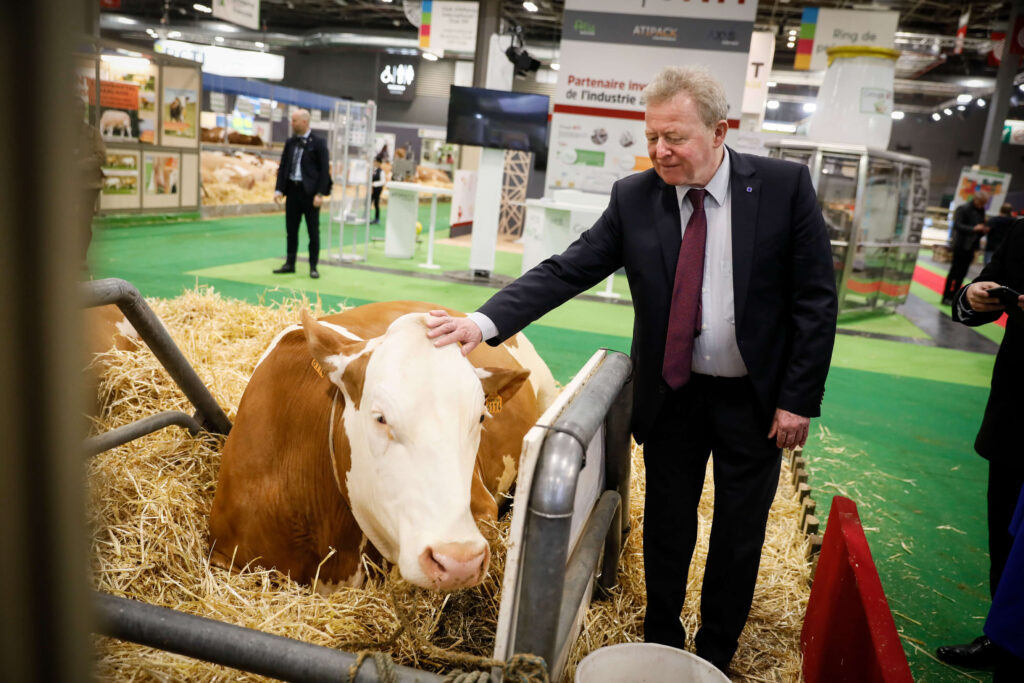
On the one hand, some farmers’ organizations argue that the difficulties created by the drought is a further reason not to approve environmental measures that could make their lives even more complicated, and further limit production. On the other hand, Farm to Fork supporters respond that a more sustainable agriculture serves the purpose of not exacerbating the climate crisis, which causes unprecedented extreme events like last summer.
As Timmermans stated in April, even before the severe drought, this strategy “is an attempt to save agriculture, not punish it, in light of the devastating effects of biodiversity loss and climate change on global food production”.
Despite the vice-president’s appeals, however, the Farm to Fork’s path is proceeding with difficulty, amid delays and setbacks.
One of the most significant examples concerns the proposed reform of the pesticides regulation.
The legislative text to halve the use of chemical pesticides by 2030 was scheduled for the first quarter of 2022, and was announced for March, and was then delayed until the end of June. Presenting it, Timmermans stated that “using the war in Ukraine to water down the proposals and scare Europeans into believing that sustainability means less food is frankly irresponsible”. However, when the proposal arrived in the European Parliament in September, it was severely criticized by popular and liberal voices because of its effect on European food security and the lack of an impact assessment on this issue.
The approval process promises to be long and complex, and the time available is limited.
“The proposal for plant protection products (pesticides) has come late. We don’t know if it will be approved before the end of the parliamentary term,” argues Ellen Hof, operations director and agribusiness expert for the Brussels-based consultancy #SustainablePublicAffairs.
The deadline may still seem far off, but negotiations on European regulations take time, because compromises have to be found between the different political forces, and different EU institutions, with the Parliament and the Council having the final vote. To make a comparison, the legislation to end sales of internal combustion engine vehicles (ICEV) was presented in July 2021. Only in the next few weeks the plenary of the EU Parliament is expected to vote for the final time on its entry into force. In all, that makes almost a year and a half. Which is roughly how long until the forthcoming European elections.
EU: Shelving Green Policies, While Planet Heats Up
Because of the run-up to the Euro elections in Spring 2024, legislative initiatives coming up in the next few months are “unlikely to be approved,” adds Hof. Those who are against the Farm to Fork strategy or, more generally, the European Green deal, therefore, may not fight in the negotiations to change the legislative texts, but may simply use a delaying tactic.
“The situation is not good,” comments Thomas Waitz, Austrian MEP and co-chair of the European Green Party. “The next few years will be crucial to reach climate targets. This means that many industries and conservatives will have to change their business model, may not earn as much money as they used to do, and they will do everything to prevent this.”

Italy: Digging the Knife into Farm-to-Fork
Italy’s new leaders are clear where the country’s policy lies. In a recent interview, Agriculture and Food Sovereignty Minister Francesco Lollobrigida stated that “a reform of the CAP is needed that gets rid of the inherent Farm to Fork ideology” and to lift the limit on uncultivated land because “what Europe provides us is not enough”. Although still vague, this last proposal refers to the demands also made by other European players to further extend the exemptions to environmental standards until the end of the current CAP programming in 2027.
Such a decision would be a further setback for the green transition of European agriculture.
At the same time, it could be a shrewd electoral move by the European Conservatives and Reformists, the ECR party of which Lollobrigida and Fratelli d’Italia are members. It would also favor the Polish Agriculture Commissioner Wojciechowski, and the rotating presidency of the Council of the European Union, which is in the hands of the Czech conservative government until early next year.
The ECR group today is not part of the popular-liberal-socialist majority that supports the Von der Leyen Commission in the European Parliament, but this could change after the 2024 elections. Some observers think new alliances could be created on the right side of the continental hemicycle. There seem to be signs of this, such as the appointment of an ECR member, the Latvian Roberts Zīle, among the vice-presidents of the European Parliament last January.
For now, it is only speculation, but in Brussels, resumes Hof, people are beginning to wonder what will become of the European Green Deal and all the measures linked to it, including in agriculture. “What will happen after the vote [in 2024]?” asks the operational director of #SustainablePublicAffairs with some concern.
Looking forward to 2024, agriculture could become fertile ground for cultivating unprecedented political understandings. Food sovereignty could be a concept around which to test new alliances, as the term transforms from a criticism of the system to a tactic to maintain the status quo: to produce as much as possible today, regardless of the implications on future generations.
Credits
Written by Paolo Riva
Graphics by Razvan Zamfira
Opening Picture by Luca Quagliato
Uncredited photos: EU Audiovisual Portal
